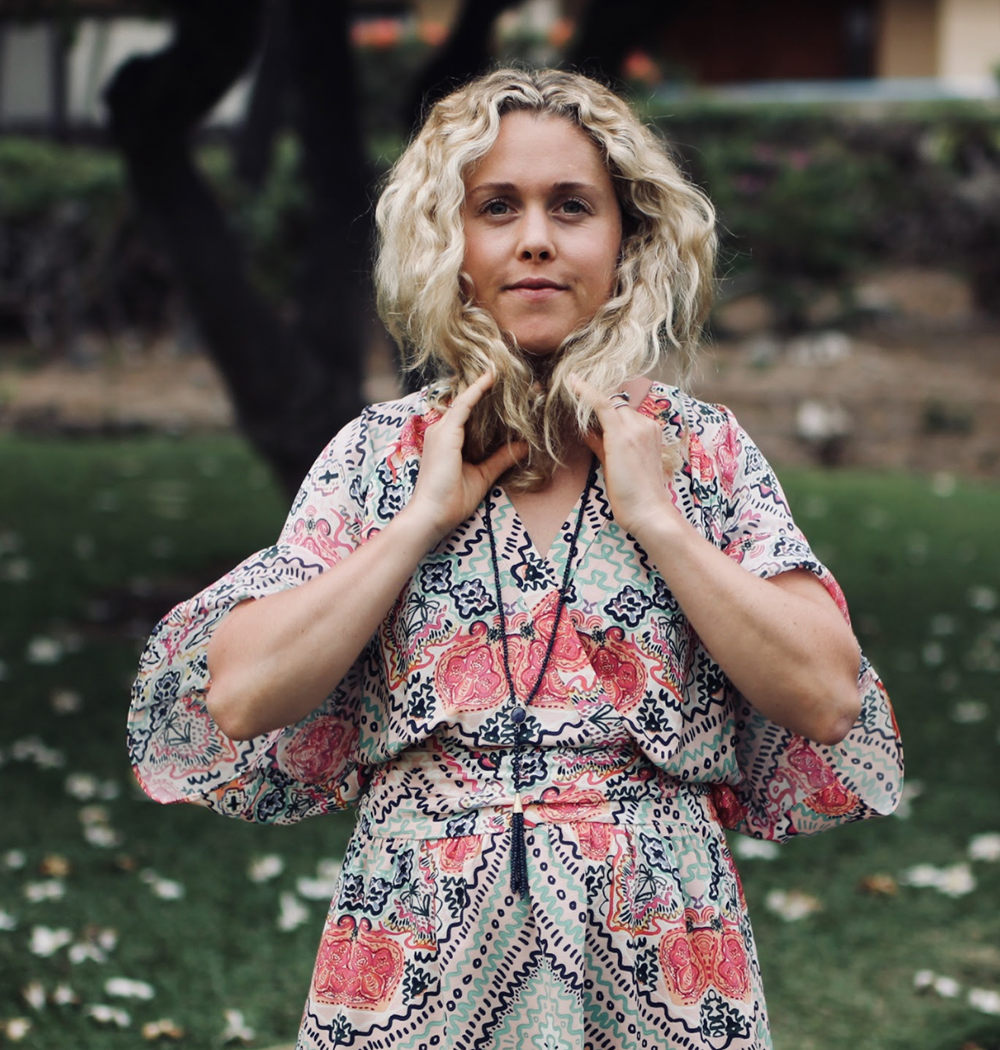We all know someone who radiates timeless youth. Their energy is contagious. Their skin glows. And their vibrancy is unmatched. Conversely, others seem to age before their time. Are these variations purely by chance? Or luck? Not quite. In fact, your biological age—the true measure of how well you’re aging—might not match the number of candles on your birthday cake. Knowing your biological age is remarkably empowering. It keen insights into how your lifestyle and genetics affect your well-being. Scroll for the 411 on biological age, how to measure it, and actionable ways to turn back the clock.
Featured image from our interview with Megan Roup by Michelle Nash.


What is biological age?
While chronological age is the number of years you’ve been alive, biological age tells a deeper story. It reflects how well your body’s cells, tissues, and organs are holding up over time. If you’re healthy, active, and manage stress well, your biological age might be lower than your chronological age! Or, it might be higher. Factors like poor sleep, an ultra-processed diet, and chronic stress speed up the clock. But unlike chronological age (which is inevitable), biological age can change. By understanding your biological age, you can make targeted lifestyle adjustments to slow aging—or even reverse some of its effects.
Why You Should Care About Your Biological Age
Discovering your biological age has profound health benefits:
- Lowers your risk of disease. Reduced biological age is associated with fewer age-related diseases.
- Improves the quality of your life. You’ll feel better, stronger, and more resilient if your body is “younger” than your chronological years.
- Increases the odds of a longer life. Slower biological aging supports longevity and vitality—also known as our healthspan.
How is biological age measured?
The best way to get insights into your biological age is a combination of health and fitness assessments. Trust me, they’ll inspire you to build a younger body. After all, your biological age is reversible! Here’s a breakdown of the main methods, all different forms of science-backed aging clocks:
1. DNA Methylation (Epigenetic Clock)
One of the most researched aging clocks, DNA methylation, measures chemical changes to your DNA. As we age, patterns of DNA methylation change in predictable ways. This allows researchers to estimate biological age. Models like the Horvath Clock and DunedinPACE are two examples that use this data to assess aging.
2. Telomere Length
Telomeres are the protective caps at the ends of our chromosomes, and they shorten as we age. Shorter telomeres are linked to aging and age-related diseases. Telomere testing, while not as precise as other methods, can be a useful indicator of biological age.
3. Biomarker Panels
By measuring various biomarkers—cholesterol, blood sugar, inflammation markers, and organ function indicators—doctors can estimate biological age. These blood biomarkers reveal how the body’s systems are functioning compared to chronological age.
4. Functional Tests and Physical Fitness
Inevitably, physical abilities (e.g., grip strength, balance, and walking speed) decline as we age. Therefore, they’re excellent indicators of biological age. Higher performance on these tests often correlates with a younger biological age.
5. Proteomic and Immune System Markers
Recent research also examines proteins and immune markers in the blood. Protein levels can indicate the aging of specific organs, offering deeper insight into biological age.
What influences biological age?
Overall health status aside, a range of factors can influence how quickly (or slowly) our bodies age.
- Genetics. Genetics play a foundational role in determining how quickly we age, affecting everything from cellular repair mechanisms to disease susceptibility.
- Lifestyle factors. To no surprise, a diet rich in antioxidants, vitamins, and whole foods can slow aging, while a diet high in ultra-processed foods can accelerate it.
- Exercise. Physical activity supports cellular health, circulation, and heart health—all of which impact biological age.
- Sleep. Quality sleep promotes cell repair and stress management, while poor sleep can lead to faster aging.
- Stress Management. Chronic stress raises inflammation and cortisol levels, accelerating aging processes.
- Environmental factors. Exposure to toxins (such as pollution and smoking) can speed up biological aging as they increase cellular damage and inflammation.
How to Find Out Your Biological Age
Curious to find out your biological age? Many companies offer at-home test kits that use DNA methylation or biomarker analysis to estimate biological age. These tests are accessible and provide detailed reports on your biological age. GlycanAge is my recommendation! Otherwise, chat with your healthcare provider about comprehensive biomarker testing (blood tests, etc.) to estimate your biological age. Last but not least, consider a fitness test—through DexaFit—to measure your precise physical fitness.
Empower Your Health Through Epigenetics
While genetics play a role in how we age, what really matters is how our genes are expressed. Enter epigenetics. Epigenetics refers to changes in gene expression that don’t alter the DNA sequence itself. Think of it as a series of switches that can turn genes on or off, influenced by lifestyle factors (diet, stress, exercise, sleep, etc.). Over time, these epigenetic changes can accelerate or slow down the aging process. And this impacts our biological age. In essence, healthy choices can help ‘rewind’ some of these effects, keeping our cells and systems younger.
Can you slow down—or reverse—your biological age?
Yes! Although we can’t turn back time, lifestyle changes (eating nutrient-dense foods, staying active, managing stress, and getting enough sleep) all have a powerful impact on how quickly you age. By adopting the right habits, you can help your body reduce its biological clock.
1. Consume Antioxidant-Rich Foods
Antioxidants—like vitamin C, vitamin E, and polyphenols—combat free radicals, which accelerate aging. Berries, dark leafy greens, nuts, and green tea are excellent sources. Aim for a rainbow of colorful foods (daily!) to get a wide variety of antioxidants. Ginger and turmeric are also key as they help reduce inflammation in the body, supporting cellular repair. Don’t forget about herbs like oregano, rosemary, and thyme, which are packed with antioxidants as well. Incorporating a mix of these nutrient-dense foods can boost your body’s defenses, protect your cells, and help keep your biological age in check.
2. Include Omega-3 Fatty Acids
When in doubt, add omega-3s to your plate. They’re found in fatty fish (salmon), walnuts, chia seeds, and flaxseeds. They’re known to reduce cellular aging and promote elasticity in skin cells, helping preserve youthfulness. These healthy fats also combat inflammation, which is a key driver of age-related diseases. Studies show that higher omega-3 levels are linked to longer telomeres (as mentioned, the protective caps on our DNA that naturally shorten as we age). So, adding more omega-3s to your diet could help keep your cells healthier for longer, slowing down the aging process at a molecular level.
3. Prioritize Gut Health
Your gut isn’t just responsible for digesting food—it’s a powerful regulator of overall health and aging. A balanced gut microbiome plays a crucial role in reducing inflammation, supporting the immune system, and even impacting mood and energy levels! Research shows that a diverse gut microbiome is linked to slower biological aging. Where to start? Eat plenty of fiber-rich foods, like artichokes, berries, legumes, and sprouted grains. And don’t forget fermented foods like yogurt, sauerkraut, and kimchi. These nourish beneficial bacteria and keep your digestive system running smoothly.
4. Emphasize Protein for Muscle Maintenance
Protein is essential for muscle repair and maintenance, which is crucial as we age. High-quality protein sources like lean meats, eggs, lentils, and beans can help preserve lean muscle mass. Aim for at least 20-30 grams of protein per meal to support muscle and tissue health. Additionally, incorporating protein-rich snacks like Greek yogurt, cottage cheese, or edamame can keep energy levels steady and help curb cravings. Try to spread your protein intake throughout the day to optimize its benefits.
5. Incorporate Strength Training and HIIT Workouts
Speaking of building muscle, muscle mass naturally declines with age. Fortunately, regular strength training (2-3 times per week) can prevent loss of muscle, maintain metabolic health, and strengthen bones. Compound moves—like squats, deadlifts, and bench presses—are best for reversing the clock. Resistance training prevents muscle wastage and boosts growth hormones, which help you retain bone-building calcium as you age. That said, you also want to stay limber. Incorporate yoga and dynamic stretches to keep your hips and joints open.
6. Limit Alcohol Consumption
While the occasional glass of wine isn’t a barrier to reversing your biological age, regular consumption can accelerate the aging process. Alcohol is inflammatory, disrupts gut health, and contributes to oxidative stress—all of which can speed up cellular aging. It also dehydrates your skin, making it less resilient and more prone to wrinkles. If you’re aiming to slow down your biological clock, consider reducing your alcohol intake to a few drinks per week or cutting it out entirely. Instead, hydrate with antioxidant-rich options like herbal teas or sparkling water with a splash of citrus. Prioritizing fewer alcoholic drinks means more energy, better sleep, and a clearer mind—all essential for feeling (and looking) younger.
7. Minimize Ultra-Processed Foods—Including Refined Sugar
Ultra-processed foods, especially those high in refined sugars, can accelerate aging by promoting inflammation, insulin resistance, and glycation (the process of damaging proteins and speeding up skin aging). To support healthier aging, focus on whole, nutrient-rich foods like seasonal veggies, healthy fats, organic grains, and lean proteins. When cravings hit, opt for natural sweeteners—like dates, allulose, or small amounts of raw honey. Ultimately, the goal is to reduce your intake of processed sugars to protect your body from premature aging.
8. Prioritize Vitamin D and Magnesium for Bone Health
Not only does muscle mass naturally decline as we age, but so does bone density. In turn, increasing the risk of fractures and joint issues. Vitamin D plays a crucial role in supporting calcium absorption, which is essential for maintaining strong bones. You can get vitamin D from sunlight, fatty fish (salmon), and fortified foods (milk). Magnesium also supports bone health by helping with calcium regulation and muscle relaxation. Magnesium-rich foods include spinach, almonds, and avocados. Prioritizing these nutrients can help strengthen bones, improve flexibility, and reduce the risk of age-related bone problems.
9. Embrace Circadian Rhythms
Try to get sunlight exposure in the morning and dim lights in the evening to align with your natural circadian rhythms. This supports optimal melatonin production, improves sleep quality, and enhances cellular repair processes that occur during deep sleep. Quality sleep is crucial for overall health—it’s during these restful hours that your body regenerates, repairs, and slows the aging process. Prioritizing good sleep helps keep your biological clock ticking at a healthier pace.
10. Practice Daily Mindfulness
Chronic stress isn’t just mentally exhausting—it speeds up aging at the cellular level by throwing off your cortisol balance. It also causes telomeres (the protective caps on your DNA) to shorten faster. The good news? Simple mindfulness practices like meditation, deep breathing, and nature walks can help calm your nervous system and reduce the damage caused by stress. By incorporating these practices into your daily routine, you can promote mental resilience, protecting your cells from stress-induced aging.
11. Incorporate Brain Exercises
Keeping your brain engaged with reading, puzzles, and learning new skills promotes cognitive longevity and reduces the risk of cognitive decline. In addition, staying mentally active fosters neuroplasticity, allowing the brain to adapt and grow even in later years. A healthy brain directly supports overall vitality and quality of life as we age, improving everything from memory to mood. Prioritizing brain health is one of the most powerful ways to ensure a vibrant, sharp mind—well into your later years!
12. Engage in Social Connections
Last but not least, don’t underestimate the power of building strong relationships. They’re essential for emotional well-being and longevity. Did you know that positive social connections stimulate the release of oxytocin—our “bonding hormone”—which promotes emotional resilience? Oxytocin also strengthens the immune system! Staying socially connected can help protect against age-related diseases, improve mental health, and enhance overall quality of life. Whether it’s through family, friendships, or community, investing in meaningful relationships is a key pillar of aging well.
Bonus Habits for Longevity
Want to take your anti-aging game to the next level? Here are a few bonus habits to supercharge your efforts.
- High-Intensity Interval Training (HIIT). 1-2 times per week, incorporate HIIT sessions (short bursts of intense activity—like 30-60 seconds—and recovery periods, like 60-90 seconds). This improves cardiovascular health, boosts mitochondrial function, and can improve insulin sensitivity—all critical for aging healthfully.
- Protect against environmental toxins. When possible, reduce your exposure to unnecessary toxins, like swapping your cleaning and beauty products for non-tox alternatives. Limiting your pollution exposure reduces the accumulation of harmful substances in the body that speed up cellular aging.
- Incorporate intermittent fasting. Giving your body regular breaks from food can improve cellular repair mechanisms (like autophagy), which helps remove damaged cells and supports healthier, more resilient cells over time. Try a 12-hour fast at night (e.g., having your final snack at 8 p.m. and not eating again until 8 a.m.).
- Cold plunges or cold showers. Exposure to cold temperatures can stimulate the body’s stress-response mechanisms, which enhance mitochondrial function, improve circulation, and increase fat-burning brown adipose tissue. Even a quick cold shower can boost energy, support immune health, and improve stress resilience.
- Regular sauna use. Heat exposure—through saunas—promotes detoxification, enhances blood flow, and stimulates heat-shock proteins, which aid in cellular repair and longevity. Studies link sauna use to improved cardiovascular health and reduced mortality from all causes.
- Grounding. Spending time barefoot on natural surfaces like grass, sand, or soil can reduce inflammation and promote a sense of calm. Studies suggest that grounding helps improve sleep, support immune health, and lower stress.
- Practice breathwork or pranayama. Breathwork exercises (slow, deep belly breathing or alternate nostril breathing), help reduce stress, oxygenate the body, and promote mental clarity. Breathwork can also positively impact cardiovascular health and strengthen the nervous system.
- Incorporate adaptogenic herbs. Adaptogens like ashwagandha, Rhodiola, and holy basil help balance cortisol levels, improve resilience to stress, and support energy and immunity. These herbs can play a powerful role in reducing the negative effects of chronic stress on aging.

Start Small, Stay Consistent
To bring this full circle, understanding your biological age is a powerful tool in your journey toward optimal health. By making mindful choices around nutrition, exercise, stress management, and social connections, you can significantly slow the aging process and enhance your overall well-being. And good news! It’s never too late to start. Small, consistent steps today can lead to a healthier, more vibrant you tomorrow.





